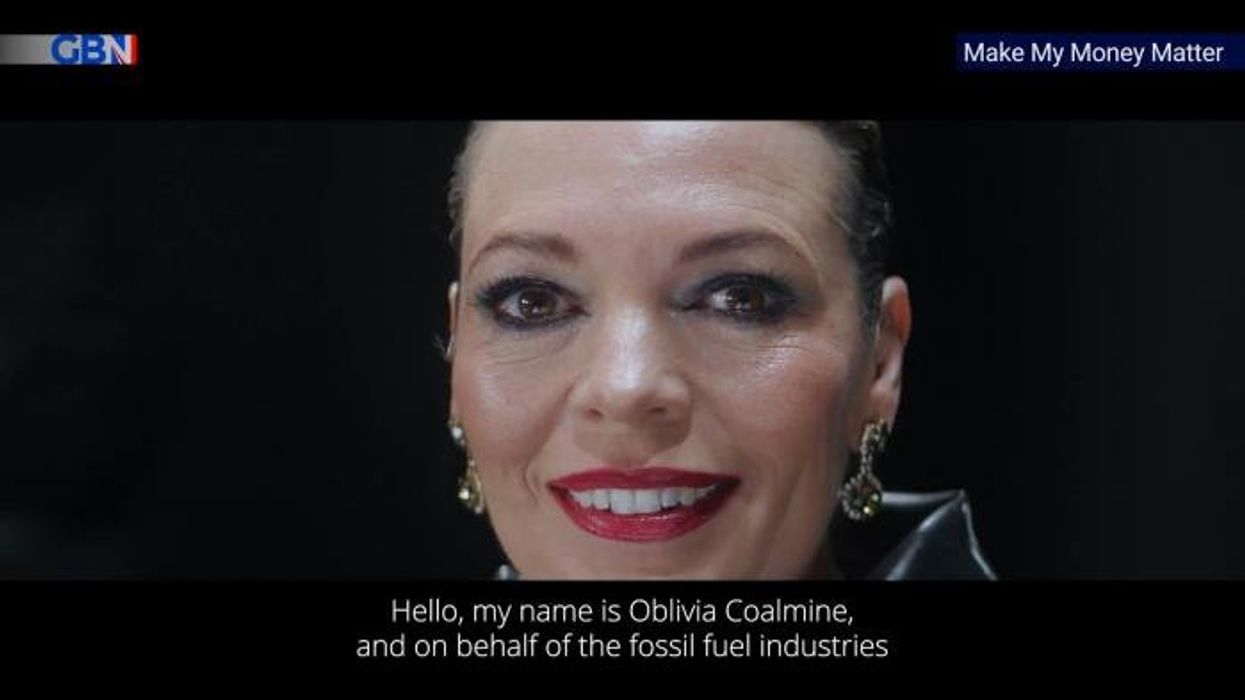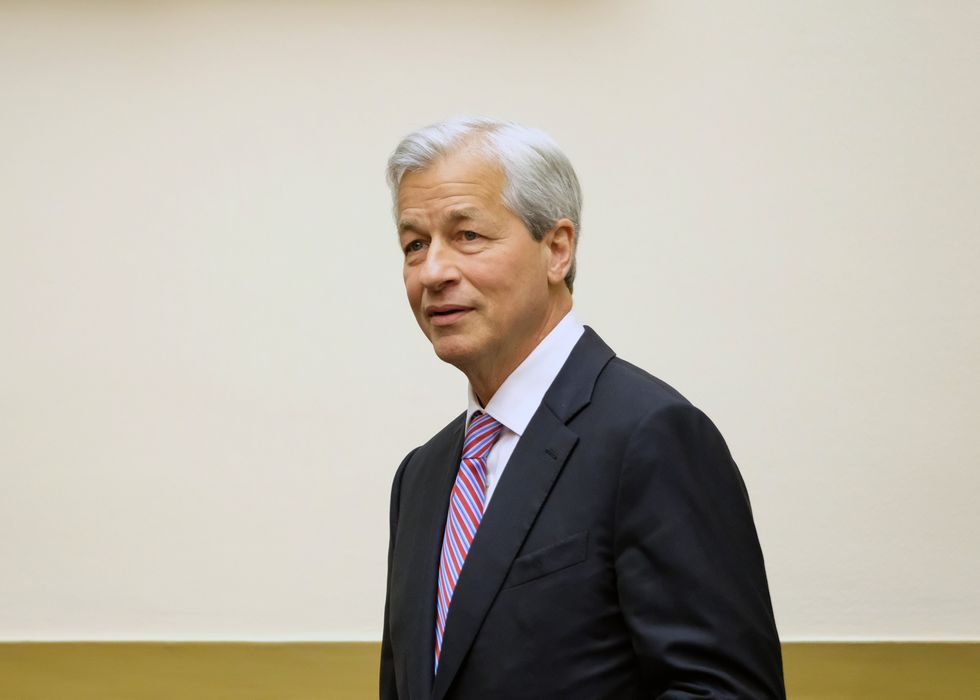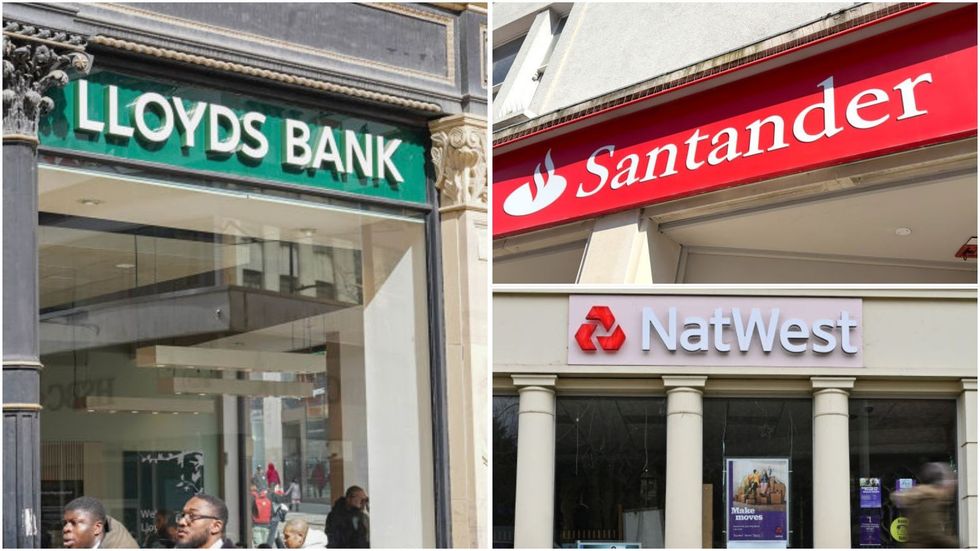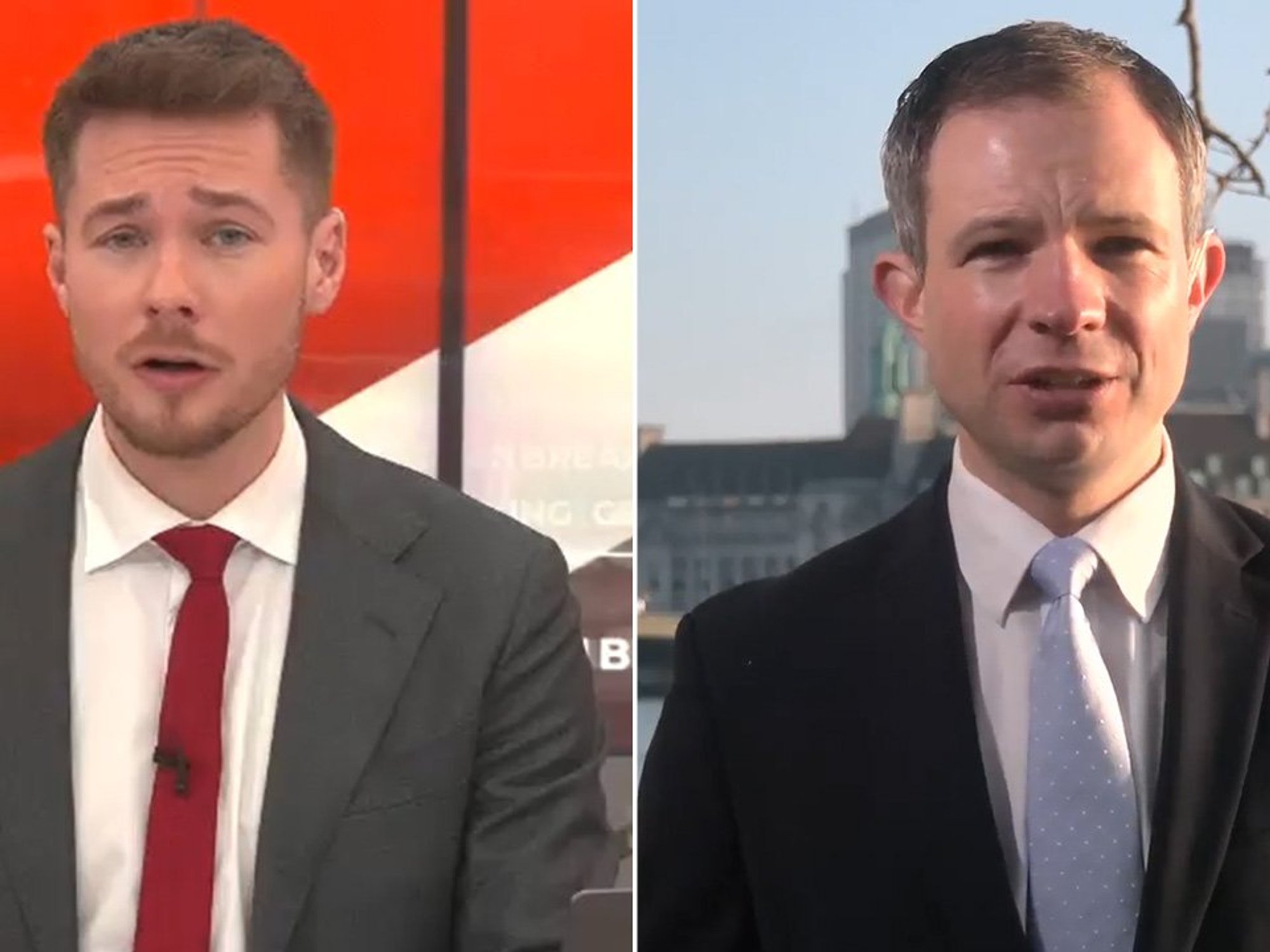Net zero exodus: Climate group stops operations as banking giants flock to fossil fuels

Olivia Colman stars in fossil fuel ad |
GB NEWS

Which? names Co-operative Bank and Triodos as only lenders with no fossil fuel exposure
Don't Miss
Most Read
Some of the UK’s biggest banks contributed billions of pounds to oil and gas financing last year, while just two were found to meet what has been dubbed as "high ethical standards", analysis by a consumer group has revealed.
Which? Money said consumers may not be aware that some high street lenders were investing "ever larger sums into environmentally damaging industries".
This news follows the cessation of the Net Zero Banking Alliance on Friday, signalling an industry wide move away from environmental processes.
The findings follow research showing that the world’s biggest banks significantly increased their fossil fuel finance in 2024.
These findings follow the announcement of the Net Zero Banking Alliance (NZBA), formed in 2021 to align banks with climate targets, has ceased operations following a wave of member exits—including HSBC and Barclays.
The move comes after major US banks also withdrew, reflecting a broader retreat from climate commitments amid shifting political landscapes.
The NZBA will no longer operate as a member-based group but will leave its climate guidance framework publicly available for banks to use independently.
Campaigners criticised the collapse, warning it undermines global efforts to coordinate financial action on climate change.It marks a shift after financing had been decreasing over the previous years since 2021.
TRENDING
Stories
Videos
Your Say
The top 65 lenders committed $869billion (£648billion) in fossil fuel financing, according to the Banking on Climate Chaos report published in June.
Which?, alongside non-governmental research groups Reclaim Finance and Global Canopy, examined the environmental policies of 16 current account providers in the UK.
It highlighted the Co-operative Bank and Triodos Bank as the only two lenders with no exposure to fossil fuels in their banking activities.
Which? gave the two banks an "Eco Provider" endorsement for their green credentials.

Major UK banks poured billions into oil and gas last year
|GETTY
It found Triodos was unique in publishing its entire loan portfolio, so customers can see where their money is being spent.
Meanwhile, seven banks – Barclays, Chase, Danske Bank, HSBC, Lloyds, NatWest and Santander – were found to contribute significantly to fossil fuel financing.
Which?’s analysis showed that JP Morgan’s Chase had coal, oil and gas policies that enabled firms to expand operations, while also replacing strong deforestation requirements with weaker ones.
The bank was the largest fossil fuel financier in the world, committing 53.5billion US dollars (£40billion) in 2024, according to the Banking on Climate Chaos report.

JP Morgan Chase CEO Jamie Dimon
| GETTYA spokesperson for JP Morgan Chase said it was the "leading global financier of diversified energy sources" and had set a target of $1trillion (£750billion) for climate initiatives by the end of 2030.
Santander was found to have policies allowing it to support customers developing new fossil fuel projects, while also lacking key protections for palm oil, soil, beef and leather.
A spokesperson for Santander said it was "supporting companies in their transition to a low-carbon economy and has been financing the build-out of renewable energy capacity for decades".
Barclays and HSBC were called out by Which? for significantly increasing their fossil fuel financing last year, despite making public commitments to clean energy.
A spokesperson for Barclays said: "Many of the economies we serve still depend on conventional energy for reliable and affordable power as they transition to renewables."
The bank added that it was committed to its ambition to be a net zero bank by 2050.
Which?’s analysis showed Lloyds and NatWest were less involved in fossil fuels than some of their peers, with stronger requirements for companies and greater transparency in reporting, but they still contributed billions of pounds.
Sam Richardson, Which? Money’s deputy editor, said: "Many consumers want to make sustainable choices, but a lack of accountability and transparency in the banking sector can make it hard to understand where customers’ money is really going.
LATEST DEVELOPMENTS:

Lloyds Bank, Santander and NatWest are among the banks named
| GETTY"Worryingly, our latest research has shown that far from making progress in this area, many major banks are instead choosing to invest ever larger sums into environmentally damaging industries."
He added that the "Eco Provider" label highlights banks that have "zero exposure to the likes of coal, oil or gas in their banking activities".
More From GB News










